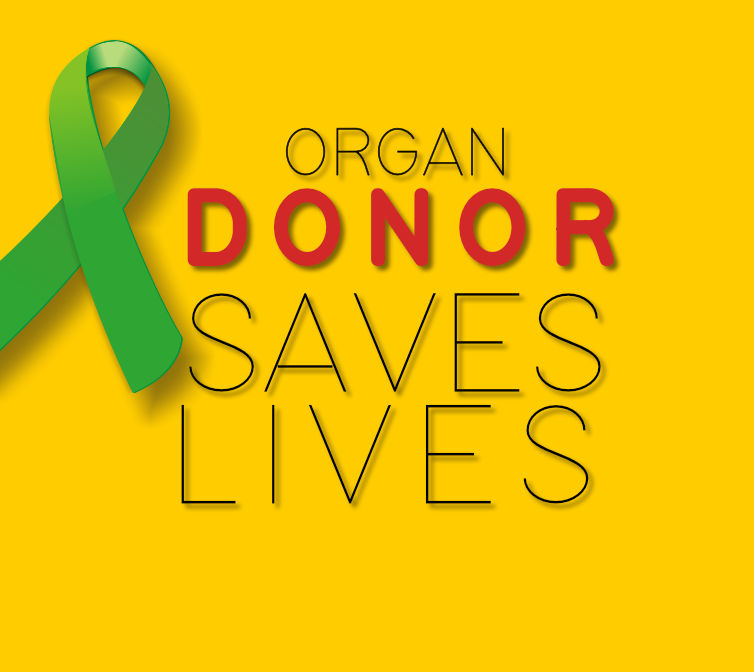
FREQUENTLY ASKED QUESTIONS
“Not everyone has chance to be god for another, But You Do.”

FREQUENTLY ASKED QUESTIONS
A brain-dead person is a person whose brain-stem is no longer functioning and where there is no scope for recovery. Brain-dead patients are kept on the support of a ventilator.
Brain stem is an important part of the brain that sustains life. A brain stem dead person is an unconscious, dependent patient, who cannot breathe on his own and is breathing through a ventilator, even though one can feel his pulse, blood pressure and other sign of life. The lack of functioning of the brain stem is a sign of death and the rest of the body will eventually stop functioning even if the ventilator is continued.
It is different between coma patients and brain dead individual. The coma patient is not dead whereas brain stem death is the irreversible stage beyond coma, as the person can either regain consciousness nor breathing capability. The heart can continue to function due to a ventilator for a few hours to few days & it is during this period that the organs can be retrieved after obtaining consent from the close relatives. Organs are never taken at the cost of donor’s life.
These are the times for which different organs can stay out of the human body:
Lung – 4 to 6 hours
Heart – 4 to 6 hours
Liver – 24 hours
Pancreas – 24 hours
Kidney – 72 hours
Cornea – 14days
Bones – 5 years
Skin – 5 years
Heart Valves – 10 years
There are a few steps for the receiving of organs that are as below:
Name of the recipient has to be registered as a cadaver organ receiver in organ transplant institute.
There is a committee formed who takes appropriate decision in the selection of the recipient based on a few criteria such as age, employed or unemployed, time since dialysis commenced, family donor, any previous transplants etc.
The organs will be transplanted into those patients who need them most urgently. Recipient selection is based on medical criteria like blood group, the result of cross-matching and body size. Social and financial status is never a criterion in selecting recipients.
As per the THOA, the following can declare a person as brain-dead:
(i) the registered medical practitioner in charge of the hospital in which brain-stem death has occurred;
(ii) an independent registered medical practitioner, being a specialist, to be nominated by the registered medical practitioner specified in clause.
(i) from the panel of names approved by the Appropriate authority;
(iii) a neurologist or a neurosurgeon to be nominated by the registered medical practitioner specified in clause.
(i) from the panel of names approved by the Appropriate Authority; and
(iv) the registered medical practitioner treating the person whose brain-stem death has occurred.
According to NOTTO, there are two types of waiting list; one is an urgent waiting list and another one is a regular waiting list. Urgent listing of patients for cadaver organ transplant is primarily based on medical criteria, i.e. patient needs organ on urgent basis otherwise he/she may not survive.
The regular waiting list is also based on medical criteria and these criteria are different for different organs. Like for kidney transplant, main criteria is time spent on regular dialysis. Similarly, for other organs, criteria are different.
According to NOTTO website, the National Registry is:
I – Organ Transplant Registry:
The Organ Transplant Registry shall include demographic data about the patient waiting for transplant (Organ/hospital wise waiting list), donor (Living Donor including Related Donor, Other than Near Related Donor, Swap Donors and Deceased Donor), hospitals, follow up details of recipient and donor etc., and the data shall be collected from all retrieval and transplant centers.
Data collection may preferably be through a web-based interface or paper submission and the information shall be maintained both specific organ wise and also in consolidated formats.
The hospital or Institution shall update its website regularly in respect of the total number of the transplantations done in that hospital or institution along with a reasonable detail of each transplant and the same data should be accessible for compilation, analysis and further use by authorised persons of respective State Governments and Central Government.
II – Organ Donation Registry:
The Organ Donation Registry shall include demographic information of donor (both living and deceased), hospital, height and weight, occupation, primary cause of death in case of deceased donor, associated medical illnesses, relevant laboratory tests, donor maintenance details, driving license or any other document of pledging donation, donation requested by whom, transplant coordinator, organs or tissue retrieved, outcome of donated organ or tissue, details of recipient, etc.
III – Tissue Registry:
The Tissue Registry shall include demographic information on the tissue donor, site of tissue retrieval or donation, primary cause of death in case of deceased donor, donor maintenance details in case of brain stem dead donor, associated medical illnesses, relevant laboratory tests, driving license or any other document pledging donation, donation requested by whom, identity of counsellors, tissue(s) or organ(s) retrieved, demographic data about the tissue recipient, hospital conducting transplantation, transplant waiting list and priority list for critical patients, if these exist, indication(s) for transplant, outcome of transplanted tissue, etc.
IV – Organ Donor Pledge Registry:
The National Organ Donor Register is a computerized database which records the wishes of people who have pledged for organ and tissue donation. A person during their life can pledge to donate their organ(s) or tissue(s) after their death through Form 7 and submit it in paper or online to the respective networking organization and pledger has the option to withdraw the pledge through intimation.
There are many hospitals and organizations those are also maintaining the list of persons who have pledged organ donation with them, will be passed to National Organ & Tissue Transplant Organisation for National Register.